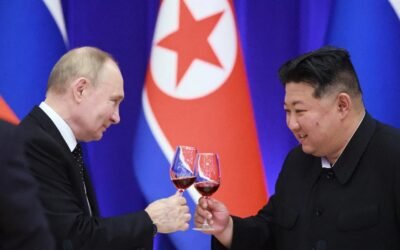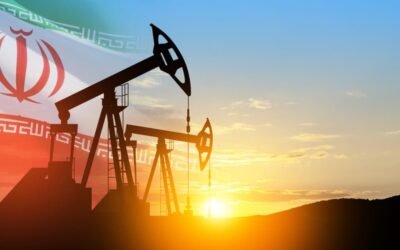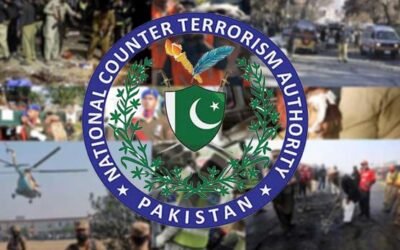WASHNGTON | ISLAMABAD | July 30, 2025 — A significant development has emerged in the economic relationship between the United States and Pakistan, with U.S. President Donald Trump announcing a substantial trade and tariff deal. This agreement, heralded by Pakistani officials as a major win, aims to facilitate greater market access for Pakistani products in the U.S. and signals a renewed focus on economic cooperation between the two nations. The announcement, coming from the highest levels of the U.S. administration, underscores a growing recognition of Pakistan’s economic potential and its strategic importance.
The breakthrough comes at a crucial time for Pakistan, which has been actively seeking avenues to boost its exports and stabilize its economy. The deal is expected to provide much-needed impetus to Pakistan’s key industries, particularly the textile sector, which is a backbone of its export economy and a significant employer.
Unpacking the Tariff Deal: A Boost for Pakistan’s Exports
While the precise details of all tariff reductions and specific product categories covered under the agreement are expected to be fully disclosed soon, Pakistani officials have expressed considerable optimism about its immediate and long-term benefits. The essence of the agreement centers on reducing duties and other trade barriers that have historically impacted Pakistani goods entering the vast American market. For Pakistan, a preferential tariff arrangement or significant tariff cuts on key export items means increased competitiveness for its products.
The textile and apparel industry is poised to be a primary beneficiary. Pakistan is a major global producer of textiles, and enhanced access to the U.S., one of the world’s largest consumer markets, could lead to a substantial increase in export volumes, higher revenue generation, and crucially, new job opportunities across the value chain—from cotton farming to garment manufacturing. Beyond textiles, the deal could potentially open doors for other Pakistani goods, including leather products, surgical instruments, and sports goods, to gain a stronger foothold in the U.S.
You May Like To Read: A Fake Encounter to Cover up Operation Sindoor Failures
This tariff deal marks a tangible shift towards making trade a more central pillar of the US-Pakistan bilateral relationship. For years, the focus has largely been on security cooperation, but both nations are now seeking to diversify and deepen their engagement through mutually beneficial economic partnerships.

Source: Reuters
President Trump’s Vision: Beyond Tariffs to Energy Reserves
Interestingly, President Donald Trump’s announcement of the deal included a forward-looking perspective that linked the trade agreement to Pakistan’s potential role in future energy dynamics. During his address, Trump commented, “maybe they’ll be selling oil to India some day,” hinting at what he termed an “oil reserves pact” with Pakistan. This statement introduced a strategic dimension to the economic agreement, suggesting U.S. interest in Pakistan’s energy resources or its potential as a transit hub for energy supplies.

Source: Deccan Herald
While Pakistan is not a major oil producer, it possesses significant untapped reserves of natural gas and has a strategic geographical location that could make it a vital energy corridor. Trump’s remarks could imply discussions around future investments in Pakistan’s energy exploration, development of energy infrastructure, or its role in regional energy trade, potentially positioning it as a future supplier or transit point for the energy needs of other regional powers, including India. This broader vision suggests a U.S. interest in long-term energy security and diversification for its allies and trading partners in Asia. The “oil reserves pact” could refer to a strategic agreement for technical assistance, investment, or even the potential for Pakistan to act as a hub for energy storage or distribution.
Economic Uplift and Strategic Alignment for Pakistan
For Pakistan, the tariff deal presents a vital opportunity for economic uplift. Increased exports will not only boost foreign exchange reserves, helping to alleviate balance-of-payments pressures, but also stimulate industrial growth and employment. The Pakistani government has actively pursued such trade agreements as a critical component of its economic revival strategy. This agreement is seen as a testament to successful bilateral engagements and a diplomatic victory in securing improved terms of trade with a major global economy.
You May Like To Read: Pakistan-Kyrgyzstan Trade Forum | Agreements to Enhance Trade Volume upto $100M
Beyond the immediate economic gains, the deal also carries significant strategic weight. It reinforces Pakistan’s standing as an important economic partner for the U.S. in South Asia, providing a counter-narrative to perceptions that the relationship is solely security-driven. A strong, stable, and economically prosperous Pakistan is in the interest of regional and global stability, and this trade deal contributes directly to that objective.
Fostering Deeper Bilateral Ties
The US-Pakistan Trade and Tariff Deal is poised to mark a new chapter in the complex relationship between Washington and Islamabad. By focusing on shared economic prosperity, the agreement lays a foundation for a more robust and multifaceted partnership. While traditional areas of cooperation, such as counter-terrorism, will remain important, the emphasis on trade and investment diversifies the relationship, making it more resilient and sustainable.

Source: Dawn
Moving forward, both nations will need to work closely to maximize the benefits of this deal. For Pakistan, this means ensuring its industries can meet increased demand, maintaining quality standards, and exploring new product lines. For the U.S., it entails continued engagement and support for a stable and prosperous Pakistan. This agreement could serve as a precursor to further economic collaboration, including potential U.S. investments in Pakistan’s growing sectors and technological transfers.
In conclusion, the recently announced US-Pakistan Trade and Tariff Deal is more than just an economic arrangement; it is a strategic move that reflects a deepening commitment to mutual prosperity and a recognition of Pakistan’s evolving role in the global economic landscape. With the potential to significantly boost Pakistan’s exports and foster a more balanced bilateral relationship, this deal sets the stage for a period of enhanced cooperation and economic dynamism.




























